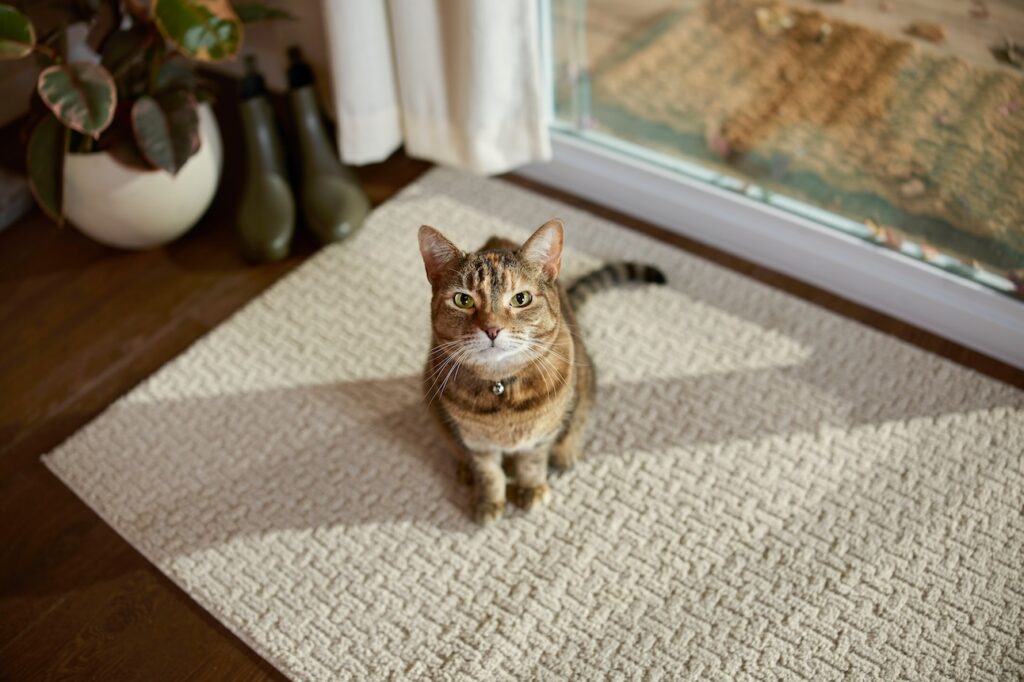Do Cats Like Music?

Photo by Chewy
Music can be calming, energizing, and inspiring for people—but what about cats? Do cats like music? The short answer is that many cats do, but their taste in music is different from a human’s.
Below, experts weigh in on feline music preferences, plus how you can tell if your cat is enjoying the sounds around them.
Key Takeaways
- Some cats might enjoy music, but most prefer species-specific compositions that mimic natural feline sounds.
- Each cat’s response to music is unique, so watch your cat’s body language for signs of enjoyment or stress.
- Music for cats should be played at a low volume and limited to short, 10- to 30-minute sessions.
Do Cats Enjoy Music?
Yes, cats do enjoy music—but only the right kind.
A 2015 study published in Applied Animal Behaviour Science found that cats were more interested in music composed specifically for their species than in music made for people. The study also reported that younger and older cats preferred music more than middle-aged cats.
“When exposed to cat-specific music, cats often show behaviors like purring, rubbing against the speakers, and orienting toward the source of the sound,” says Barbara Benitez, DVM.
Keep in mind that not all cats share the same preferences. So, can cats like music? Yes. But yours may not prefer it. Pet parents should always pay attention to how their cat is reacting to avoid creating unnecessary stress for them.
“Body language is the best guide,” says Cristy Brusoe, cat behaviorist and owner of Cat Training by Cristy in Tampa, Florida. She notes that signs of stress include “flattened ears, dilated pupils, tail flicking, or leaving the area.”
What Kind of Music Do Cats Like?
Cats tend to prefer music made specifically for felines. In the 2015 Applied Animal Behaviour Science study, researchers composed cat music using characteristics of noises made naturally by cats.
“The songs they respond to the most are the ones that best mimic the natural vocalization frequencies cats use, like purring and meowing,” Dr. Benitez says. Like a cat’s purr, “these tend to be in the 25–150 hertz range.”
For example, Music for Cats by composer David Teie combines feline-centric sounds like suckling and purring to create cat-targeted music.
If you’re wondering how a cat might respond to your personal record collection, the better question may not be “What kind of music do cats like?” but “What kind of music will cats tolerate?” Research shows cats are less engaged when listening to music made for people.
“Some cats may tolerate certain human music, like classical pieces, but they react much more strongly when the music matches their natural biology and behavior,” Dr. Benitez says.
Benefits of Music for Cats
There may be advantages to a cat listening to music, particularly when it’s designed for their species.
Research has shown that appropriate music can help reduce stress levels during vet visits, and experts agree it can calm cats during unfamiliar experiences. Brusoe notes that it may “mask frightening noises,” such as fireworks or thunderstorms, and “can even help ease tension between cats.”
If you’ve tried cat-specific music and your kitty seems to enjoy it, consider using it as a tool for managing your pet’s anxiety. Dr. Benitez suggests “playing music before and during potentially stressful situations, such as vet visits, grooming, or when guests are over.”
How To Play Music for Cats
If you’re curious to see whether your cats and music can vibe, be intentional about how you introduce sounds.
Because cats are natural predators, their hearing is especially sensitive—far more so than that of their human family members. Anything loud or sudden will be startling and unpleasant, so keep the volume low, “closer to background noise than something you’d actively listen to,” Brusoe suggests.
Pet parents should limit the amount of music time their cat gets, or they risk developing a dependency, Dr. Benitez says. “Short music sessions of 10–30 minutes are best.”
Recommended Product
You can also pair music with other cat calming aids, such as a diffuser or supplement.
Recommended Products
FAQs About Cats and Music
Should I leave music on for my cat?
If your cat seems to enjoy cat-specific music, it’s fine to leave it on in the background while you’re out. Just make sure it’s limited to one room so your cat can find a quieter space if they feel overstimulated.
What sounds do cats like?
Generally, cats prefer quiet, gentle, natural sounds over loud, unpredictable noises. Different sounds can evoke different reactions based on instincts and individual preferences.
“Nature soundscapes like rain or soft wind may have a calming effect, while playful sounds like crinkling toys or tapping noises can encourage activity,” Dr. Benitez says.
High-pitched sounds that mimic prey can trigger hunting instincts, while the sound of water could pique a cat’s curiosity.
“Purring noises are particularly comforting, since they mimic feline social bonding,” Brusoe says.
Another sound cats know and love: their pet parent’s voice. Research suggests that cats pay more attention to their pet parent’s voice than to other humans.
Do cats prefer silence?
Cats vary in their preferences (just like humans!), so there’s no single answer. But experts agree that for most cats, silence is more desirable—and nearly all cats dislike sudden, loud noise.
When it comes to deciding whether or not to provide some musical ambience, consider the audience first and foremost. “The key is watching your cat’s reaction,” Brusoe says. “Some enjoy the added soundscape, while others would rather nap in peace.”







